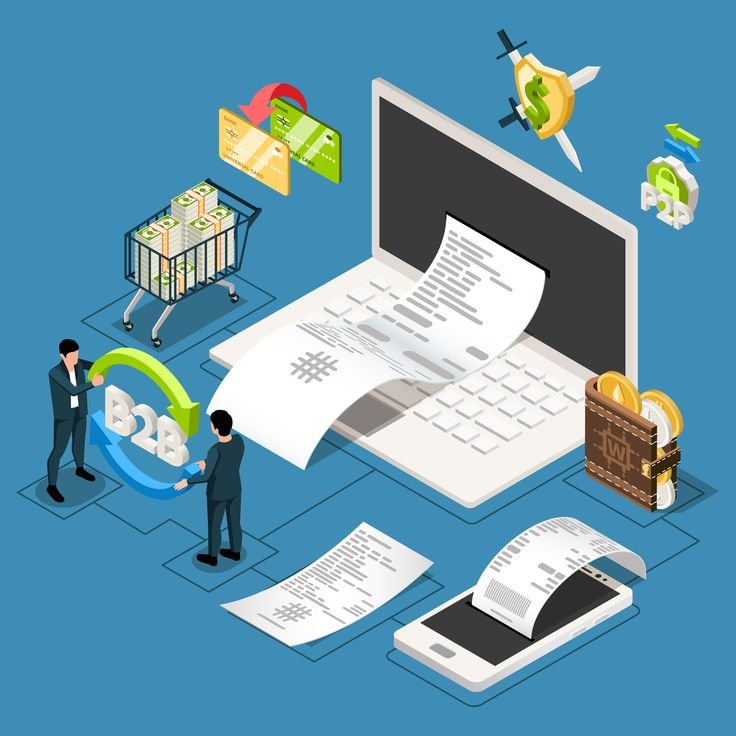Introduction
A Point of Sale (POS) system is more than just a tool for processing transactions—it’s a complete business management solution. With advancements in technology, modern POS systems help businesses improve efficiency, track inventory, enhance customer experience, and increase sales. Whether you run a retail store, restaurant, or service-based business, having the right POS system can make a significant difference. In this guide, we’ll explore how POS systems are transforming businesses in 2025 and how you can leverage them for success.
Why Every Business Needs a Modern POS System
In today’s fast-paced digital world, businesses need more than just a cash register. A robust POS system offers:
- Seamless Payment Processing: Accepts credit/debit cards, mobile payments, and digital wallets.
- Real-Time Inventory Management: Automatically tracks stock levels and sends alerts when inventory is low.
- Data-Driven Decision Making: Provides analytics and sales reports to help businesses make informed choices.
- Customer Relationship Management (CRM): Stores customer data for personalized marketing and loyalty programs.
- Employee Performance Tracking: Monitors staff sales and work hours to optimize workforce productivity.
Find out more about how POS solutions drive business growth.
Key Features of a POS System in 2025
1. Cloud-Based POS for Remote Management
Cloud-based POS solutions allow business owners to access sales, inventory, and reports from anywhere, ensuring operational flexibility and security.
2. AI-Powered Analytics
Artificial Intelligence (AI) is enhancing POS systems by providing real-time insights into customer behavior, sales trends, and demand forecasting.
3. Contactless & Mobile Payments
With the rise of digital transactions, POS systems now support NFC payments, QR codes, and biometric authentication for secure, cashless transactions.
4. Multi-Channel Integration
Businesses with both online and offline stores benefit from POS systems that sync with eCommerce platforms, ensuring seamless inventory and sales tracking.
5. Smart Inventory Management
Automated stock tracking, supplier integration, and AI-driven demand forecasting help businesses avoid overstocking and stockouts.
Learn more about advanced POS inventory management.
Industries Benefiting from Modern POS Systems
Retail
- Streamlines checkout processes for faster transactions.
- Tracks product performance to optimize stock.
- Integrates loyalty programs to enhance customer retention.
Restaurants & Cafes
- Offers mobile ordering and table-side payments.
- Manages reservations, menus, and kitchen operations.
- Reduces wait times with self-service kiosks.
Service-Based Businesses
- Schedules and processes appointments.
- Tracks client history for personalized service.
- Integrates billing and invoicing for smooth payment collection.
Explore industry-specific POS solutions.
How to Choose the Best POS System for Your Business
Step 1: Identify Your Needs
Determine whether you need a POS for sales tracking, inventory management, or customer engagement.
Step 2: Look for Scalability
A good POS system should be able to grow with your business, supporting additional locations and features.
Step 3: Evaluate Security Features
Ensure the POS system is PCI-compliant, encrypts payment data, and offers fraud detection.
Step 4: Consider User Experience
An intuitive interface and minimal training requirements make implementation easier for your staff.
Step 5: Compare Costs & Support Options
Choose a system with transparent pricing, no hidden fees, and 24/7 customer support.
Learn about how to select the right POS system.
Future Trends in POS Technology
1. AI-Driven Sales Forecasting
AI will analyze past sales data to predict future trends, helping businesses make better stock and pricing decisions.
2. Biometric Authentication for Secure Transactions
Fingerprint and facial recognition will become common for verifying transactions.
3. Augmented Reality (AR) in Retail POS
Retailers will leverage AR to create interactive in-store experiences through POS systems.
4. Blockchain Integration for Fraud Prevention
Blockchain technology will enhance security and transparency in digital transactions.
5. Voice-Activated POS Systems
Hands-free POS systems will allow employees to process sales via voice commands, improving efficiency.
Stay updated on emerging POS technology trends.
Conclusion
POS systems have evolved from simple cash registers to all-in-one business management tools. Whether you run a small business or a large enterprise, investing in a modern POS system can help you improve efficiency, reduce costs, and enhance customer experience. By choosing the right POS system with advanced features like AI analytics, cloud-based access, and mobile payments, you can stay ahead of the competition and future-proof your business.




